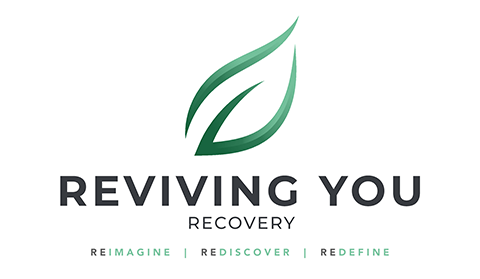
Aftercare
Aftercare, also known as post-recovery support, refers to the ongoing support and services provided to individuals after they complete a formal treatment program for addiction.
Recovery does not end when treatment does
Aftercare aims to help individuals successfully transition back into their communities and maintain their recovery momentum. It involves a combination of outpatient counseling, support groups, relapse prevention strategies, and continued access to healthcare professionals.
Aftercare plays a vital role in addressing potential triggers, providing ongoing guidance, nurturing healthy coping skills, and fostering a supportive network of peers. By embracing the concept of aftercare, individuals can enhance their chances of achieving lasting recovery and leading fulfilling lives free from the grips of addiction.

Aftercare plan helps achieve long-term recovery
Having a strong aftercare plan can lead to numerous positive outcomes in the recovery journey.
A well-designed aftercare plan ensures continuity of care and support, which significantly reduces the risk of relapse. By providing access to ongoing therapy, support groups, and other resources, individuals are better equipped to navigate the challenges that may arise post-treatment.
An aftercare plan helps individuals establish healthy coping mechanisms, allowing them to effectively manage triggers and stressors. It also promotes personal accountability and growth, as individuals actively engage in their recovery by setting realistic goals and tracking progress. Continued care strengthens the individual’s support network, fostering connections with others who have gone through similar experiences and providing a sense of community.

A crucial aspect of the recovery journey
The team at Reviving You Recovery works closely with you during your treatment to help you achieve at least a 90-day aftercare goal – if not longer. Aftercare is an important component to long term recovery.
Our aftercare planning is robust and is designed to provide ongoing support and guidance to ensure long-term success. By calling us today, you can learn more about our aftercare goals and how we tailor our approach to meet the unique needs of each individual. Our dedicated team of experts is committed to assisting you in maintaining sobriety, developing healthy coping mechanisms, and reintegrating back into society.
How important is developing an aftercare plan?
Having an aftercare plan is important because many people face difficulties when transitioning out of treatment. The risk of relapse is highest in the first few months after someone leaves rehab. Between 40% and 60% of people recovering from drug and alcohol addiction experience a relapse at some point in time.
Sober living & community engagement
Sober living is crucial in early recovery for a multitude of reasons. It provides a structured and safe environment free from the temptations and triggers that can hinder progress towards sobriety. By removing oneself from the old environment that facilitated substance abuse, individuals in early recovery can focus on healing and rebuilding their lives without distractions.
Sober living offers a supportive community where peers are on a similar journey, offering understanding, encouragement, and accountability. It provides an opportunity to learn essential life skills and develop healthy coping mechanisms, crucial for long-term sobriety. Sober living facilities often incorporate support and responsibility, where individuals can address underlying issues and learn strategies to prevent relapse and promote holistic healing.

In this transitional phase, sober living acts as a vital steppingstone towards a sustainable, sober lifestyle, setting a strong foundation for lasting recovery.
A strong alumni community & expressing gratitude
Giving back to the community during sobriety is not only a way to express gratitude for the support received on the journey to recovery, but also a means to create a positive impact on others. It allows individuals to utilize their newfound strengths, empathy, and compassion to uplift those who may be facing similar challenges. Whether it’s volunteering somewhere or simply being a listening ear to someone in need, giving back fosters a sense of purpose and fulfillment.
By sharing experiences, individuals in sobriety can inspire hope, instill belief, and remind others that recovery is possible. Giving back strengthens the recovery process by reinforcing the principles of service, humility, and selflessness, ultimately contributing to a healthier and more connected community overall.
Staying involved in sober activities is of utmost importance in the journey of recovery. Engaging in these activities not only fills the void left by addiction but also serves as a pillar of support and growth.
By participating in sober activities, individuals can build a positive and healthy community, fostering connections with like-minded individuals who understand the struggles and victories of recovery. These activities also provide an opportunity for personal development, helping individuals rediscover their passions and cultivate new hobbies. Being involved in sober activities helps to strengthen coping mechanisms, enhances self-esteem, and reduces the chances of relapse by providing a sense of purpose and fulfillment. Prioritizing sober activities is not merely an option, but a vital element in maintaining long-term sobriety and enjoying a fulfilling life in recovery.

Sponsors can play a pivotal role in the success of recovery
Sponsors, typically fellow recovering addicts or individuals who have experience with the recovery process, provide invaluable guidance, support, and mentorship to those navigating the challenging journey of long-term sobriety.
Sponsors serve as trusted and relatable confidants who understand the unique struggles and triumphs that accompany recovery. Through regular meetings, phone calls, and check-ins, sponsors help individuals stay accountable to their aftercare goals, offering a listening ear and a source of wisdom when challenges arise. Their firsthand experience and knowledge of resources make sponsors invaluable in identifying strategies for relapse prevention, fostering personal growth, and promoting positive lifestyle changes.
Reviving You Recovery encourages continued support from sponsors during treatment goals.
The commitment and dedication of sponsors can make a tremendous difference in the lives of those in aftercare, offering them the necessary tools and encouragement to build a strong foundation for lasting recovery.
We believe continued AA/NA involvement is crucial for successful aftercare in the recovery journey. These support groups provide a safe and understanding environment for individuals to share their experiences, struggles, and triumphs with others who have walked the same path. Regular meetings offer a sense of belonging and remind participants that they are not alone in their ongoing battle against addiction. The fellowship built within AA/NA can provide invaluable guidance, accountability, and encouragement for individuals. Attending meetings also helps reinforce the principles learned during treatment, such as self-awareness, honesty, and taking personal responsibility. By staying involved in AA/NA, individuals can grow their recovery foundation, creating a solid framework for a more fulfilling life.
Goals of aftercare
The primary goal of aftercare is to help you develop and hone actionable coping skills. As you face the challenges of a sober life, Reviving You Recovery aftercare services can provide the support needed. Our aftercare planning is robust and is designed to provide ongoing support and guidance to ensure long-term success.
- Make healthy choices about your lifestyle, activities and relationships
- Reinforce the skills you learned for coping with stress and strong emotions
- Identify your own triggers and prevent a return to use
- Minimize the damage of a recurrence of use if it occurs
- Gain access to supportive individuals and groups who can help you through the recovery process

Your future starts here
Redimagine. Rediscover. Redefine.
Embrace the strength and resilience within you, and trust that by taking the first step to help yourself, you are not only opening the door to a brighter, healthier future but also unlocking your true potential.


Absolutely amazing and friendly team! The property is clean and beautiful. I have learned so much and am excited to begin my journey in recovery.
— AK









